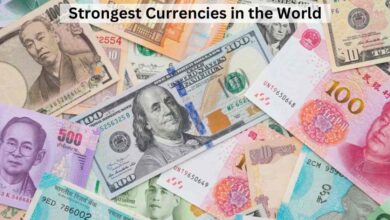Digitalization of Currency and Its Consequences Towards Globalization — THE BAGPIPE

Digitized currency poses threats to us because the digitized world is not as stable for us as the physical. The Federal Reserve Bank is a government-affiliated organization which is in charge of the money supply and monetary policy. They manipulate the economy based off of its current needs with the switches and pulleys which they are granted by the government. This system was established 111 years ago and has served us exceptionally well (for the most part).
It is not clear what the system would look like if the world turned from a currency that is managed by experts in the FED to being managed by technology experts. Because the currency is digital, there is no way to track its appreciation or depreciation (value going up or down, respectively).
Digitized currency could very likely lead to a universal currency. The problem with this is that purchasing power (the value of your dollar depending on your economy) varies greatly across the world. In Mozambique, you need 63.24 meticais in order to purchase one United States dollar. This means that the Mozambique metical has depreciated against the US dollar and is much less valuable. Given this data, we can surmise that it is very important that we allow countries their respective currencies so that they can continue to ebb and flow in their own ways and appreciate and depreciate on their own. If we were to switch to one universal currency, especially if we were to switch to a digitized currency, it would be increasingly impossible for us to manipulate these factors, and we could almost count on smaller countries being marginalized by the universal system or government in place.
The threats of digitalization are similar to the threats of globalization: increased marginalization to the poorly socially constructed. In the traditional understanding of globalization, it is usually thought that the world would become one government, one economy, one nation, etc. The classic rebuttals against it are that this transition would be too marginalizing to undeveloped countries (like West African countries for example), and that the universal government (or whatever form of authority seizes power) would conquer and exploit the nation for its natural resources (and probably engage in slavery). A way to avoid this is to continue to ensure that each country has its autonomy and especially to avoid globalization at all costs.
Forced compliance is another risk that we run when tampering with globalization and digitalization. I fear that the day is coming where digitized currency will take the place of physical currency, and individuals who have chosen not to incorporate internet technology in their lives will soon have no choice but to comply in order to engage in commerce (lest they regress to a barter economy).
Arguably, a globalized and universal economy and government would be “simpler” in some ways, but I believe that it would sow much more evil and reap much more harm than the flawed systems we are endowed with currently.





